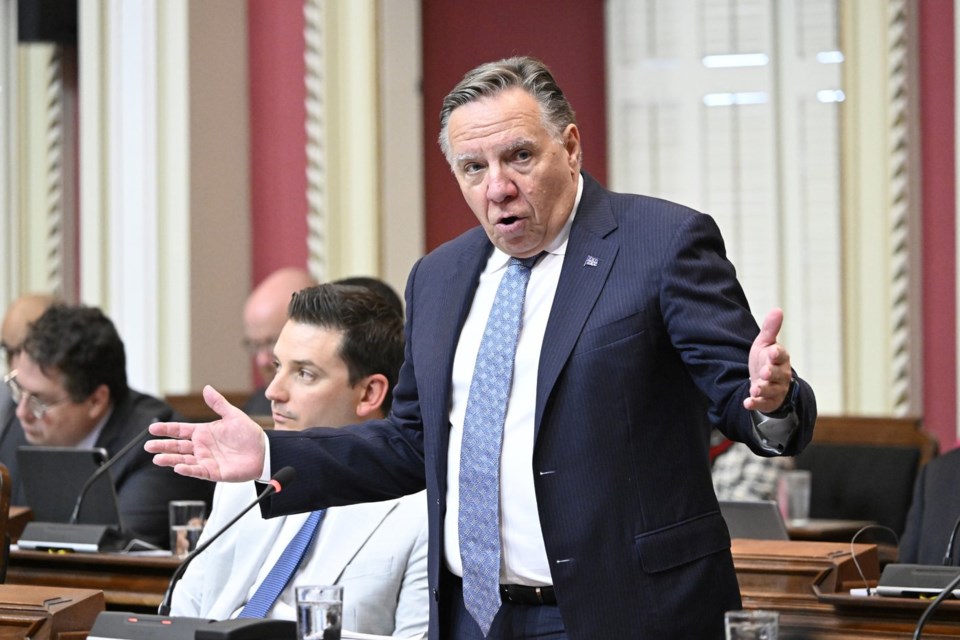QUEBEC CITY — Several Indigenous groups are calling on the Quebec government to distance itself from the "colonialist mentality" as it designs a new $92-million history museum project in the provincial capital.
The Assembly of First Nations Quebec-Labrador, the First Nations Education Council and an Innu cultural centre — Institut Tshakapesh — made their feelings known about the project in a brief submitted about a government bill to create the museum.
They asked the government to distance itself from a colonialist point of view and include in the museum the stories, contributions and perspectives of Indigenous people.
Denis Gros-Louis of the First Nations Education Council told a hearing at the legislature that the bill in its current form doesn't clearly recognize the fundamental contributions of First Nations.
The Assembly of First Nations Quebec-Labrador had criticized Premier François Legault for suggesting during the museum announcement in April that the province's history began with the arrival of French explorers Jacques Cartier and Samuel de Champlain in the 16th and 17th centuries.
Legault responded to say the Musée national de l'histoire du Québec will focus specifically on the history of the French-speaking Québécois nation but will also discuss the contributions of Indigenous people.
John Martin of the First Nations Education Council told the hearing he's worried the museum will present an overly rosy view of Quebec's history. "There are things in Quebec's history that aren't very positive," said Martin, who is a member of the Gesgapegiag Mi'gmaq First Nation. "The Oka crisis, for example," he said, referring to the 78-day standoff in 1990 over land rights between Mohawk protesters and the Canadian Armed Forces.
The Indigenous groups also repeated previous criticism of historian Éric Bédard, who was quoted telling reporters at the museum announcement that history begins with writing, and that therefore "the Indigenous people represent a bit the prehistory of Quebec."
"I think we have a different understanding of what history means," Martin said. "You're asking us to endorse what we perceive to be reminders of colonialism."
Quebec Culture Minister Mathieu Lacombe said he understood the objection to the word "prehistory."
"I understand that those words could have been hurtful," he said.
The new museum is expected to open in 2026.
This report by The Canadian Press was first published Sept. 24, 2024.
Thomas Laberge, The Canadian Press



